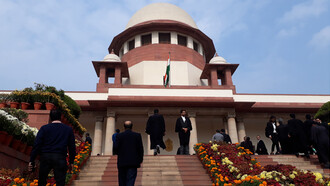South Africa is a country of beautiful landscapes, diverse cultures and endless opportunities. But behind the smiles many South Africans carry the burden of poverty and live under the shadow of never having enough. Their stomachs grumble as they count coins to feed themselves and their loved ones. This reality rears its ugly head every now and again in the form of painful stories such as those recently coming out of the Eastern Cape.
In a country with alarmingly high poverty and unemployment levels lies the Eastern Cape. A mostly rural community in the poorest province in South Africa. Where hunger, poverty and despair drive mothers to commit murder and suicide. The situation is more than just a tragedy but a call to immediate action. In Butterworth, the Eastern Cape, a mother killed her three daughters, poisoning two and stabbing the third before taking her own life. Police believe this could have been driven by poverty. Less than a month later, another is accused of killing three of her children, before dying by suicide in Lusikisiki in the same province. Again the police are investigating the possibility of poverty as a motivating factor for the deaths.
Nearly half of the population receive a grant in some way or form, be it permanent or temporary. It is a lifeline not just for the recipient. Entire households depend on old age, child, disability and COVID distress grants as well as nutrition programmes offered for children in schools. It is a norm to see long queues of waiting recipients snake their way around stores. There is a comfort in a looming payday. Occasionally there is a delay, a ‘glitch’ in the system and the grants don’t come on time, spiralling communities into confusion and panic as it did but a month ago.
The delays and the chaos that ensues highlight the extreme dependency of our people on what is placed in their hands by our government, without it many are destitute. These occurrences are a signal of deep decay- a failure. Money and food parcels are barely keeping our people alive, giving them just enough to go about their day, never more. Placing bread on the table cannot replace the much-needed development of the economy and the advancement of its people so that they can find their place in society and birth dreams of a better future. A chance to grow and contribute to their surroundings, in a world that is innovating and moving. But there is a silent cry, one of desperation and destitution from those being left behind, unable to find their footing as the ground they stand on moves and bends beneath their feet. Perhaps our democracy is still trying to put down its roots. Its leaves are withering and falling due to a lack of nourishment, the soil hasn’t been tended to, and perhaps its been completely forgotten,- as long as some leaves still hang from the twisted branched.
30 years later the children of the ‘young democracy’ are shackled by lack and poverty and debilitated by hunger pains. No individual, no mother should endure so much suffering that she sees death for herself and her young children as a means to end her pain, immediate and future. The hopelessness ringing in her ears should never drown out the laughter of her children or blind her vision from seeing her babies smile. Our townships and villages have become crowded graveyards filled with living people, barely surviving. We need development, we need growth. These are not new sentiments, we know this but we are moving very quickly but in the opposite direction. Perhaps this piece is my attempt to make sense of the thoughts that run through my head when I hear stories of such pain. We know what we need, but how do we get there? What do I as an individual, as a South African contribute and make things just a little bit better? We live in the same country, children of the same soil but the reality is that we are all worlds apart.















